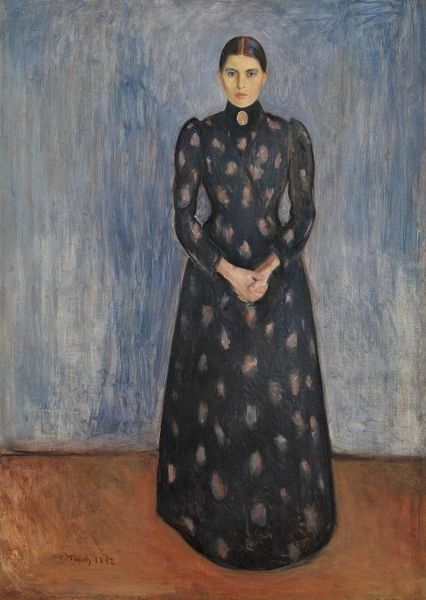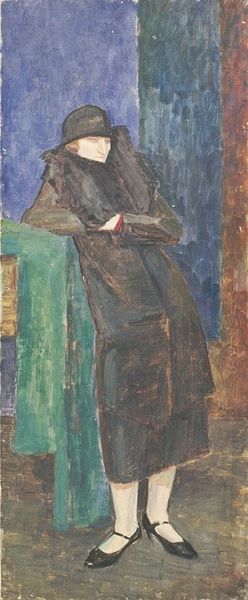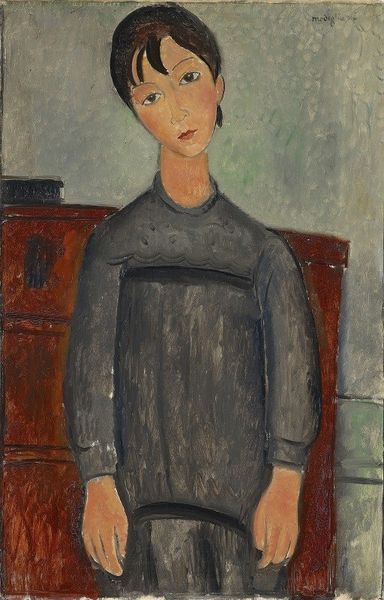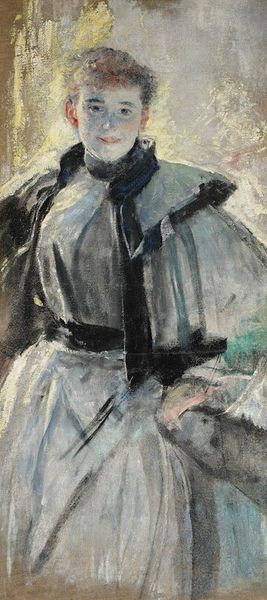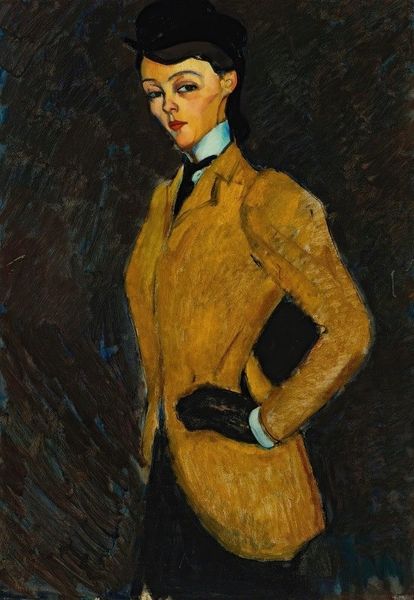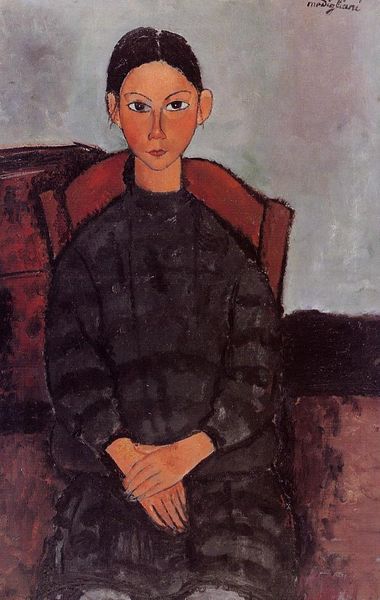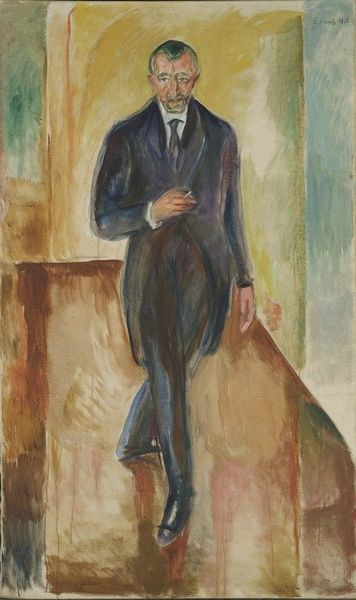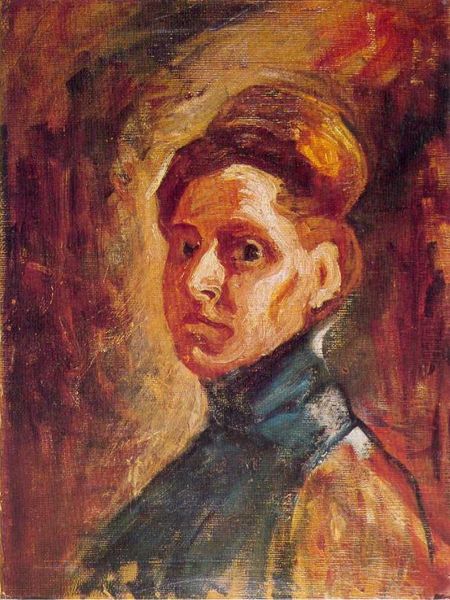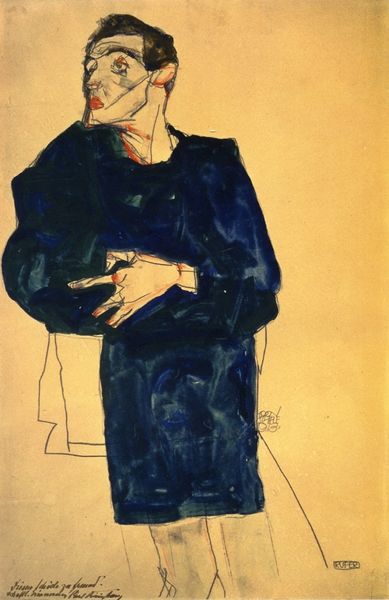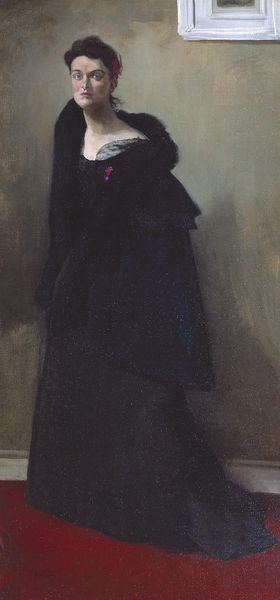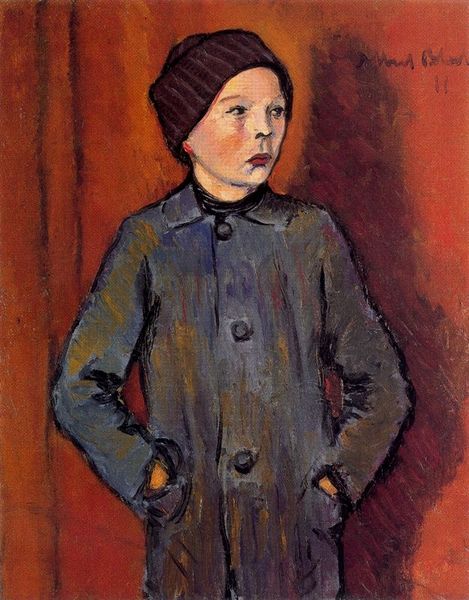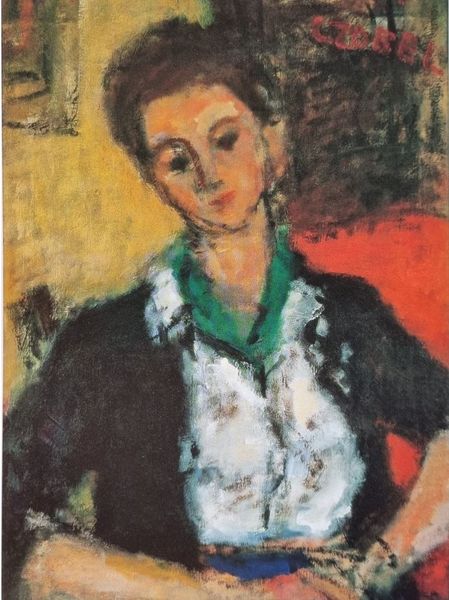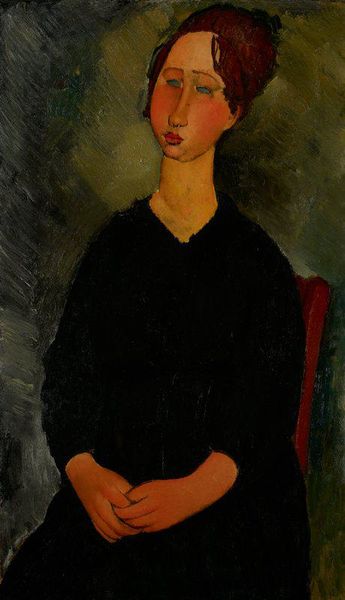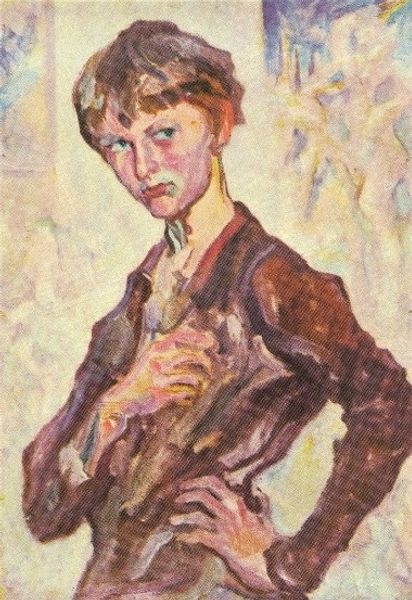
oil-paint
#
portrait
#
figurative
#
oil-paint
#
figuration
#
oil painting
#
expressionism
#
portrait art
Copyright: Public Domain: Artvee
Curator: Up next, we have Edvard Munch’s 1905 oil painting, "Portrait of Mrs. Förster-Nietzsche." Editor: It strikes me immediately as somber. The limited palette, that dominating blue... it feels weighty, almost suffocating. Curator: Mrs. Förster-Nietzsche was, of course, the sister of the philosopher Friedrich Nietzsche, and she became the custodian of his literary estate. Editor: Custodian is right. Look at the materiality. The rough brushstrokes, especially in her dress. The fabric is clearly suggested but not painstakingly rendered. It’s more about the impression of heavy material. Curator: Munch's association with her says quite a lot about his ambition. He saw her as a key patron who could champion his work within intellectual circles. But she herself was a problematic figure later in her life due to her far right politics. Editor: Fascinating. So this portrait becomes a social object too, imbued with that context of patronage and, well, problematic politics, shaping how we view it. I wonder what type of material Munch used, like did he specifically pick a pigment for the blue or to highlight a quality he desired. Curator: Certainly, it forces us to consider the uncomfortable alliances that artists sometimes forge, and how those connections can impact an artist’s legacy but that heavy brush stroke you describe reflects that anxious and complicated period of Expressionism. Editor: And beyond Munch's personal ambitions or sociopolitical issues, that bold, almost crude handling of the paint does speak to the intensity of emotional experience so often associated with the Expressionists. He does seem to push what the oil paints can do in capturing not only the image, but the mood, almost an atmosphere in time. Curator: The history here speaks volumes, it is interesting how that raw visual language can intertwine with the more difficult political and social circumstances, to show and evoke what can often not be captured, I believe Munch highlights that for all. Editor: It leaves me wondering how materials, in both their production and reception, influence perceptions of even the most personal portrayals. An exercise in power dynamics as expressed in craft, perhaps?
Comments
No comments
Be the first to comment and join the conversation on the ultimate creative platform.
